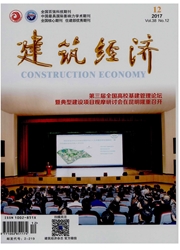

 中文摘要:
中文摘要:
基础设施PPP(Public—Private Partnership)项目投资大、时间长、风险高、合同结构相对复杂.项目谈判过程往往旷日持久.很多时候由于在实施过程中无法兑现承诺或发生其他原因而出现争议.以至于实践中只有少量PPP项目能正常运作。其中.很大原因在于公共部门和私营部门之间缺乏公平的定量风险分担标准。本文通过详尽的文献综述。首先归纳风险分担在项目过程中的时点和要点.并总结风险分担对项目资金价值的影响.最后比较分析已有的风险分担准则和不同的风险分担结果.以期为PPP项目风险分担的研究和实际操作提供可参考依据。
 英文摘要:
英文摘要:
Negotiations among project participants in Public-Private Partnership (PPP) especially between government and the private consortium are time-consuming and costly. Disputes often arise during the operation period, due to the characteristics associated with PPP mode which typically involves huge investment, long concession period, high risks and complicated contractual structure. Earlier research works indicated that a fair quantitative risk allocation among the stakeholders is essential for the success of PPP projects; however, actual empirical research on the ground is limited. In light of these, this paper suggests the timing and key points of risk allocation in a PPP project, and then summarizes their influences on value for money and the criteria to allocate risks. A comparative study of several risk allocation schemes is also provided as a reference for further research and practice of PPP projects.
 同期刊论文项目
同期刊论文项目
 同项目期刊论文
同项目期刊论文
 期刊信息
期刊信息
